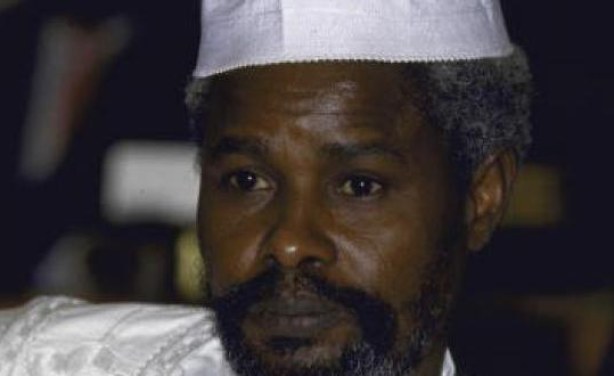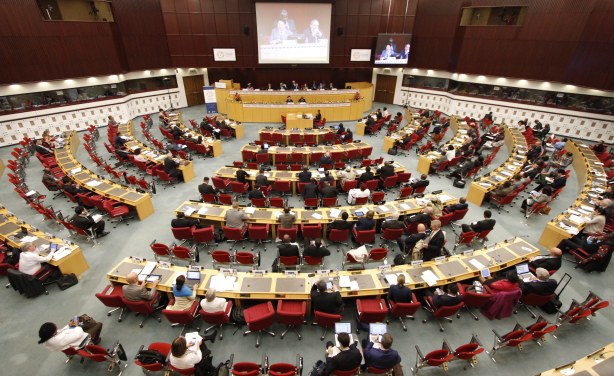 Maputo — The parliamentary group of the opposition Mozambique Democratic Movement (MDM) on Thursday once again called for the arrest of former President Armando Guebuza.
Maputo — The parliamentary group of the opposition Mozambique Democratic Movement (MDM) on Thursday once again called for the arrest of former President Armando Guebuza.
The spokesperson for the MDM parliamentary group, Venancio Mondlane, first made this demand on the floor of the Mozambican parliament, the Assembly of the Republic, on 17 June, in connection with the 850 million dollar loan to the Mozambican Tuna Company (EMATUM), guaranteed by the government in 2013.
This time he demanded that Guebuza be detained in connection with contracts between the publicly owned electricity company, EDM, and companies in which Guebuza is a shareholder. He alleged that the contracts were obtained without going through a proper tendering procedure.
The relations between EDM and supplying companies in which Guebuza and other leading figures in the ruling Frelimo Party had interests were “promiscuous”, accused Mondlane.
He was speaking in a debate on an MDM proposal to set up a parliamentary commission of inquiry into the affairs of EDM. The MDM queried the legality of the contracts EDM had signed with other companies, and claimed that EDM was currently running at a huge loss, owing around 50 million US dollars to its main supplier of power, HCB, which operates the Cahora Bassa dam on the Zambezi river.
The MDM also attacked the EDM rural electrification programme, claiming that it was only a few institutions and families living in district capitals which benefitted from this programme, and that almost none of the power was used in agriculture,
But the MDM proposal, backed by the former rebel movement Renamo, ran up against clauses in the Assembly’s standing orders, which state that the Assembly may not set up commissions of inquiry on any matter that is before the courts – and the finances of EDM are currently before the Administrative Tribunal, the body that inspects the legality of public expenditure.
Last year, the Finance Ministry sent the auditors into EDM. The General Inspectorate of Finance (IGF) undertook an audit and submitted the audit report to the Administrative Tribunal. The Tribunal informed the Assembly that it is currently working with the Attorney-General’s Office to ascertain the truth of the findings in that report. If there is evidence of financial wrongdoing, that will be appended to the EDM’s accounts for possible proceedings against those responsible.
For the Frelimo parliamentary group, this meant that the affairs of EDM were indeed before the courts, and so it would be against the Assembly’s own statutes to set up the commission of inquiry demanded by the MDM.
The opposition, however, argued that an audit report before the Administrative Tribunal does not count as a judicial case. It was just “a normal procedure”, said MDM deputy Jose Manuel de Sousa, while Eduardo Namburete of Renamo insisted that the IGF audit “does not prevent the Assembly from holding its own inquiry”.
The opposition drew a distinction between an “administrative matter” and a “judicial case”, but Frelimo insisted that the very fact that the EDM finances were in the hands of the Administrative Tribunal meant that the MDM’s demand was illegitimate, and would violate the separation of powers.
Frelimo deputy Lucas Chomera praised the government’s decision to call on the IGF “which shows its commitment to fighting mismanagement and corruption”. A parliamentary commission, he argued, might interfere with the work of the Tribunal.
As for EDM’s financial woes, Chomera said they predated Guebuza’s presidency by decades – they began in the 1980s when, during the war of destabilization, Renamo repeatedly blew up pylons, downed power lines and murdered EDM workers.
At times the debate was embittered. Not only did Mondlane call for Guebuza’s arrest, but he suggested that the government was “a criminal association”, while Antonio Muchanga of Renamo claimed that those who opposed a commission of inquiry “are allies of organized crime”.
The Frelimo overall majority ensured that the MDM proposal went down to defeat. The 133 Frelimo deputies in the chamber voted against it, while the 87 opposition deputies present voted in favour.


